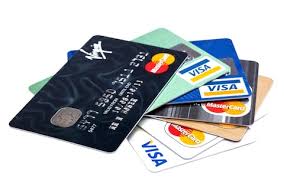 For those who have never ventured into the world of credit cards, understanding what they are exactly and what they can mean for your credit score is an important consideration before you go on to submit your application. From understanding the benefits it could bring you, to knowing what you need to repay and when, we’re taking a look at what you need to know about credit cards below.
For those who have never ventured into the world of credit cards, understanding what they are exactly and what they can mean for your credit score is an important consideration before you go on to submit your application. From understanding the benefits it could bring you, to knowing what you need to repay and when, we’re taking a look at what you need to know about credit cards below.
What Is A Credit Card?
Credit cards are becoming an increasingly popular method of getting cash when we need it, and while obtaining payday loans here in a financial emergency is an option, credit cards can often be the go-to method of choice. So, what exactly is a credit card? Just like your debit card, your credit card will look, feel and be used in a similar way. One main difference is the money you spend on your card is essentially lent to you, which you have to pay back, similar to a short-term loan. Some cards come with very low or no interest fees depending on when you pay it off, but most will have a set APR that you’ll need to take into account.
The Benefits
While some people might tell you otherwise, having a credit card can be considered as beneficial, providing you pay off what you owe when it’s owed. It can be easy to miss payments and quickly accrue interest, but when used effectively, a credit card could have a positive impact on your credit score. Having a good credit score could help your chances of being approved for bigger loans, such as mortgages and car finance with better and more favourable rates overall. It could even help with your insurance premiums, allow you to avoid utility deposits and even help with smaller purchases like mobile phones on finance.
You Need To Compare
While there could be some benefits when it comes to credit cards in terms of building up a credit rating, you may want to consider comparing these credit cards, as some are likely to be better for your financial situation than others. Different banks, credit unions, credit card companies and even retailers will all have their own credit cards and comparing each and every one of these will help you determine which is best for you and your needs overall. Some will have better rates than others and some will even offer rewards, but be careful with this! While your new credit card might come with a shiny, unique print and a £25 gift card, the rates attached could make the reward redundant. You may want to consider researching the options in depth to make sure you’re getting the best possible option for you.
Secured vs. Unsecured
There are two main types of credit cards and as you may have already guessed, they are secured and unsecured credit cards. Those without a credit history who may otherwise struggle to get a credit card could opt for a secured card. This is essentially a credit card that requires you to pay a deposit, usually equal to whatever the limit of the card is. While this may seem counterproductive overall, this deposit is essentially just collateral – if you make payments into your account and keep up the repayments on time, you can get your deposit back when you switch to an unsecured card or close the account.
An unsecured credit card is one that doesn’t have any cash deposit backing or other collateral attached. These are often based entirely on your income level and credit history, so expect the limit to be low on your first unsecured credit card.




No Comments